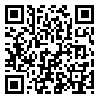Volume 4, Issue 2 (June 2025)
IJER 2025, 4(2): 0-0 |
Back to browse issues page
Download citation:
BibTeX | RIS | EndNote | Medlars | ProCite | Reference Manager | RefWorks
Send citation to:



BibTeX | RIS | EndNote | Medlars | ProCite | Reference Manager | RefWorks
Send citation to:
Ebrahimi Ghavam S, Pourhosein M, Aslanzadeh M. (2025). Exploring the Impact of Reciprocal Teaching Methods on Problem-Solving Skills, Learning Speed, Metacognitive Knowledge, and Academic Self-Concept. IJER. 4(2),
URL: http://ijer.hormozgan.ac.ir/article-1-213-en.html
URL: http://ijer.hormozgan.ac.ir/article-1-213-en.html
1- Associate Professor Allameh Tabataba'i University, Tehran, Iran , s.ebrahimighavam@gmail.com
2- PhD Student in Human Resources and Organizational Behavior, Yazd University, Yazd, Iran
3- Assistant Professor Allameh Tabataba'i University, Tehran, Iran
2- PhD Student in Human Resources and Organizational Behavior, Yazd University, Yazd, Iran
3- Assistant Professor Allameh Tabataba'i University, Tehran, Iran
Abstract: (1274 Views)
Objective: The present study investigated the effectiveness of the reciprocal teaching method on problem-solving skills, learning speed, metacognitive knowledge, and academic self-concept of seventh-grade female students in Tehran city.
Methods: This semi-experimental study was conducted on a sample of 20 seventh-grade female students in the 9th district of Tehran, selected through a multi-stage cluster sampling method. SPSS version 26 software was used for statistical data analysis, with variance analysis with repeated measurements applied.
Results: The test analysis results indicated the positive effect of metacognitive strategies (reciprocal teaching) on students' problem-solving skills, learning speed, metacognitive knowledge, and academic self-concept.
Conclusions: Based on these findings, students learn about behavioral, cognitive, and metacognitive strategies during the educational process, which improves their problem-solving skills, learning speed, metacognitive knowledge, and academic self-concept.
Methods: This semi-experimental study was conducted on a sample of 20 seventh-grade female students in the 9th district of Tehran, selected through a multi-stage cluster sampling method. SPSS version 26 software was used for statistical data analysis, with variance analysis with repeated measurements applied.
Results: The test analysis results indicated the positive effect of metacognitive strategies (reciprocal teaching) on students' problem-solving skills, learning speed, metacognitive knowledge, and academic self-concept.
Conclusions: Based on these findings, students learn about behavioral, cognitive, and metacognitive strategies during the educational process, which improves their problem-solving skills, learning speed, metacognitive knowledge, and academic self-concept.
Keywords: Metacognitive Strategies, Problem-Solving Skills, Learning Speed, Metacognitive Knowledge, Academic Self-Efficacy
Type of Study: Original |
Subject:
Educational Psychology
Received: 2024/05/26 | Accepted: 2024/11/2 | Published: 2025/06/1
Received: 2024/05/26 | Accepted: 2024/11/2 | Published: 2025/06/1
Send email to the article author
| Rights and permissions | |
 |
This work is licensed under the Creative Commons - Attribution 4.0 International. |






